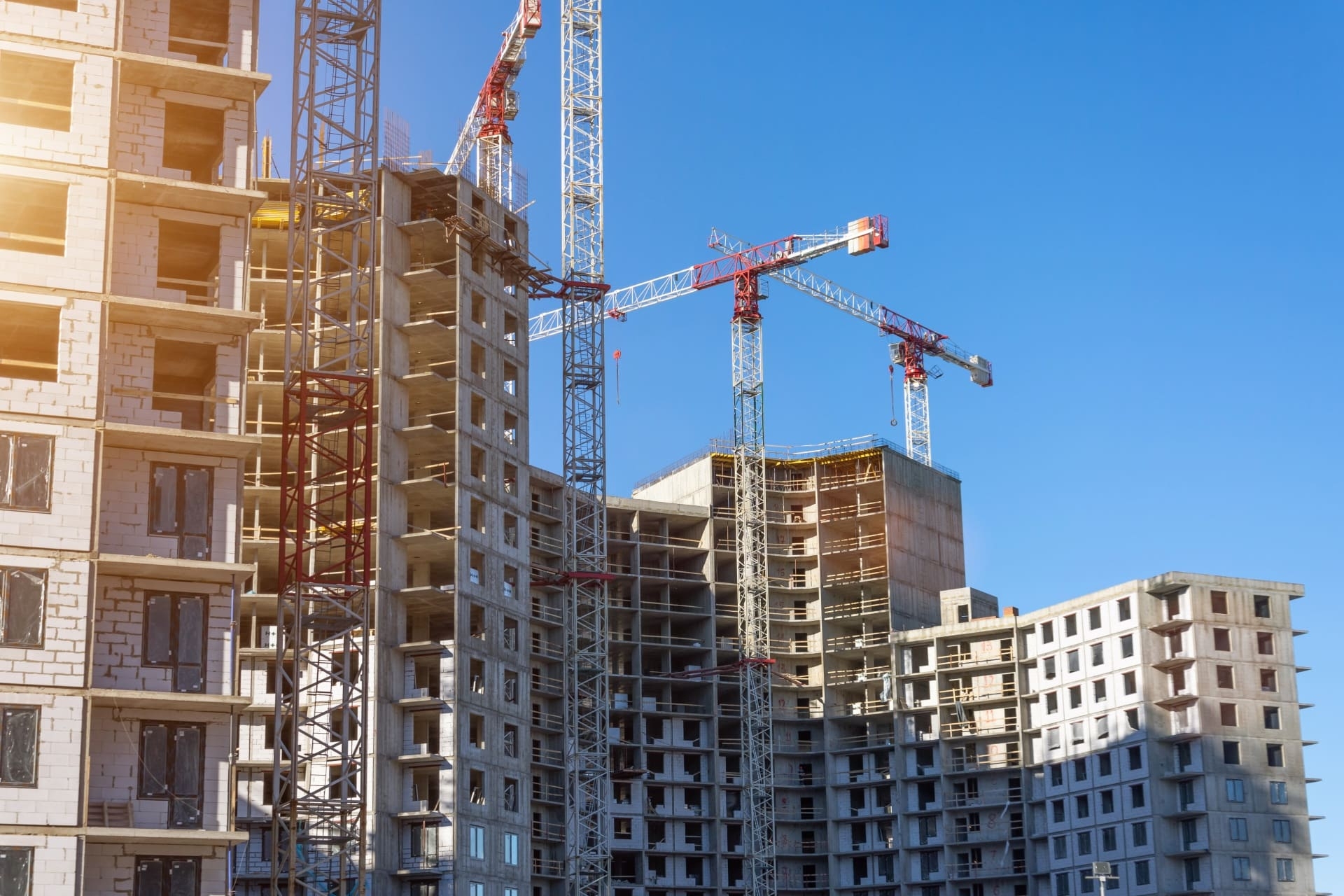Future real estate object


When it comes to buying an apartment in a new building, many investors are interested in the question of whether it is possible to somehow secure their money before the building is completed. In Ukraine, this has become possible thanks to new changes in legislation and the introduction of the Future Real Estate Object (FRO) mechanism.
The Ministry of Education and Science is part of a system that allows investors to officially register their rights to an apartment, parking space, or commercial premises while the property is still under construction. Thanks to state registration and special property rights, investors receive legal protection, transparent purchase terms, and the ability to legally dispose of or pledge the property as collateral.
The new system ensures controlled and secure registration of investments in new buildings even before the building is put into operation. In this article, we will look at how FRO works, what buyers need to know, and what advantages the new mechanism offers.
Why was there a need to introduce the Ministry of Education and Science
Until the adoption of the law on future real estate objects, investing in construction in Ukraine remained risky. Buyers of apartments effectively transferred funds to developers in advance by signing preliminary agreements or investing money through construction financing funds. In most cases, such schemes did not provide real ownership rights until the building was commissioned. This meant that the investor had no legal confirmation that the apartment actually belonged to him.
The lack of a clear legal framework led to typical problems: double sales of the same apartment, delays or stoppages in construction, bankruptcy of developers, leaving investors without money or housing. The state also lacked an effective mechanism for controlling the flow of investments in primary real estate.
The mechanism for future real estate projects has become the answer to these challenges. It creates a transparent system in which buyers' rights are recorded in the state register at the construction stage. Thanks to this, investors receive not a promise of an apartment in the future, but a legally confirmed property right to a specific object. FRO reduces the risk of fraud and makes the primary housing market more understandable and safer for buyers and the state.
What is a future real estate object (FRO)
A future real estate object (FRO) is a part of a construction project that has not yet been completed but is already defined in the project documentation as a separate object. After construction is completed and the building is put into operation, the FRO becomes a full-fledged real estate object: an apartment, a parking space, a garage box, or commercial premises.
The main idea behind the FRO is to formalize investor rights at the construction stage. State registration of special property rights to the FRO guarantees that the purchased apartment or other property legally exists and belongs to the investor. This prevents the "sale of air" and ensures transparency in the primary real estate market.
Future real estate properties are divided into residential and non-residential. Residential properties include apartments and other residential premises, while non-residential properties include garages, parking spaces, and commercial spaces such as shops or offices.
To better understand how FROs are formed, it is useful to know the related terms:
Indivisible object of unfinished construction. This is an entire object that does not yet have registered special property rights, and any legal transactions involving it are prohibited until registration.
Divisible object of unfinished construction. This is an object that is conditionally "divided" into several future real estate objects. It is within such divisible objects that FROs are formed.
Special property right. This is the investor's right to a specific real estate object, which can be registered in the State Register of Property Rights even before the completion of construction. This right makes it possible to demand the completion of construction, commissioning of the object, and obtaining ownership of the finished object.
FRO is not just an apartment "on paper." It is a legally secured asset that protects the investor and makes the process of purchasing real estate in a new building under construction transparent and safe.
Legislative framework and conditions for registration with the Ministry of Education and Science
In Ukraine, the legal framework for future real estate projects is regulated by the Law of Ukraine "On Securing Real Rights to Real Estate Objects to Be Built in the Future," which came into force on October 10, 2022. The main purpose of the law is to protect the rights of investors in the primary market and to create a transparent and secure system for purchasing properties that are not yet completed.
The law stipulates that before the sale of any FRO, the developer is required to register a special property right in the State Register of Property Rights. This mechanism ensures that every investor who invests in a new building receives a legally protected right to a specific property. However, the law applies only to new properties for which a building permit was issued after October 10, 2022.
Registration with the Ministry of Education and Science is possible only if the following conditions are met:
the developer has the right of ownership or use of the land plot on which the facility is being built;
the existence of valid urban planning conditions and restrictions or a building passport;
permission to perform construction work, provided that construction is not suspended due to violations of the law;
the facility has not yet been put into operation;
special property rights must be registered for the upper divisible object, which forms part of the FRO;
no encumbrances on the divisible object that block registration by the Ministry of Education and Science;
Inclusion of the future real estate object in the guarantee share, which ensures the successful completion of the project even in the event of financial problems arising for the developer.
Thanks to these regulations, investors benefit from a transparent purchasing process, and the risks of fraud or selling "air" are significantly reduced. The law establishes clear rules for developers and allows the primary real estate market to be built on a solid legal foundation.
Guaranteed share of construction: how the state protects investors
A guarantee share is the part of a construction project that remains the property of the developer until the facility is put into operation. Its main purpose is to ensure the completion of the residential complex even in the event of financial difficulties or bankruptcy of the developer. This mechanism creates an additional level of protection for investors, as the sale of all apartments without a reserve is no longer permitted.
The size of the guarantee share is established by law and depends on the location of the property:
10% of the total construction area — for large cities (Kyiv, Lviv, Odesa, Kharkiv, Dnipro);
5% — for other settlements.
This share is essentially the project's "insurance fund." It cannot be sold until construction is complete and the building is put into operation. If the developer goes bankrupt, the rights to the guarantee share can be transferred to another developer who will complete the project.
In summary, the state has created a mechanism that allows construction to be completed even under unfavorable circumstances and reduces the risk of investment loss for buyers. The guarantee share also encourages developers to take a more responsible approach to financing their projects, as it directly affects their ability to sell the entire volume of housing. This is an important element of the new primary market regulation system, which increases confidence in investments in new buildings.
Ministry of Education and Science purchase and sale agreement: how it is drawn up and what the buyer receives
A contract for the sale and purchase of a future real estate object (FRO) is the main document confirming the investor's rights to a specific apartment, parking space, or commercial premises even before the completion of construction. It must be certified by a notary, as only the latter has the authority to make changes to the State Register of Property Rights, in particular regarding special property rights to FPI.
The buyer will incur certain expenses. Notary services usually cost around UAH 5,000–6,000 for an apartment or parking space and approximately UAH 3,500 for a storage room. In addition, registration of a special property right with the Ministry of Education and Science will cost another 1% of the property value.
Payment to the Ministry of Education and Science can be made in two ways:
Full official payment, when the entire amount is specified in the contract and transferred by bank transfer. This option is transparent, documented, and minimizes risks for the buyer.
Partial official payment with additional cash. In this case, the contract often stipulates that in the event of termination of the agreement, only the officially declared amount is returned to the buyer. This scheme allows you to minimize taxes, but significantly increases the risks for the buyer, since the transferred cash has no legal confirmation and is not subject to notarial protection.
The transfer of rights to another person or assignment also has its own rules. If the buyer has not yet paid the full cost of the property, the developer's consent is required, and the contract usually provides for a commission of about 3% of the value of the property right. If the property is fully paid for, it can be alienated without additional commissions and without the developer's consent.
After signing the contract, the buyer receives a set of documents confirming their rights. These include a copy of an extract from the State Register of Real Rights confirming the registration of a special property right to the property, the original purchase agreement, and an extract confirming any encumbrances on the property. After full payment, the encumbrance is redeemed, and the buyer receives an extract from the register confirming their ownership of the future property.
Taxation on the purchase and resale of FRO
When purchasing and subsequently reselling future real estate properties, investors face certain tax obligations. If an investor sells a property for more than they purchased it for, taxes are paid only on the difference between the sale price and the purchase price. Tax rates are 18% personal income tax (PIT) and 5% military tax. For example, if an apartment was purchased for $100,000 and sold for $120,000, the income tax will be 23% (18% PIT + 5% military tax) of the difference of $20,000, or $4,600.
In the event of assignment of rights to the Ministry of Education and Science to another person, expenses and taxes are also provided for:
notary services, which currently cost around UAH 5,000–6,000 per apartment or parking space;
income tax, namely personal income tax and military tax, except in cases where the property was inherited.
Income from the transfer may be reduced by documented expenses for the purchase of the property. In this case, the tax base will be calculated as "the sale price or appraised value of the property minus the cost of its acquisition," which allows for accurate accounting of investment income. For heirs, both the personal income tax rate and the military tax are 5%.
What benefits does the buyer get from the implementation of FRO
The introduction of the mechanism of future real estate objects (FRO) radically changes the approach to buying apartments in new buildings. Whereas previously investors effectively invested in construction without a clearly defined legal status, they now receive a legally registered property right to a specific object while the building is still under construction. This makes the investment not only transparent but also protected from a legal standpoint.
Key benefits for the buyer:
Legal certainty. The buyer immediately obtains the right to claim a specific apartment or premises, which is confirmed by state registration. This eliminates the risk of double sales or changes in conditions by the developer.
Investment protection. The Ministry of Education and Science becomes the subject of civil rights, so the buyer can dispose of it like any other property: sell, gift, or bequeath it.
Transparency of calculations. All transactions involving property rights are conducted through official channels and recorded in registers, which reduces the risk of fraud.
Financial flexibility. FRO can be used as collateral or mortgage, which opens up additional opportunities for lending against future real estate.
Guaranteed right to the completed property. Once the building is commissioned, property rights automatically convert into ownership rights without any additional complicated procedures.
Thanks to changes in legislation, it has been possible to create a clear and secure mechanism for investing in housing that has not yet been commissioned. Buyers receive a real guarantee of their rights, and the new-build market has clear and transparent rules.
Conclusion
The introduction of the mechanism for future real estate projects has been an important step toward a civilized market for new construction in Ukraine. Now, purchasing housing during the construction phase has a clear legal basis, and the state has a tool for monitoring the transparency of transactions. For buyers, this means fewer risks and greater confidence in the outcome.
The FRO mechanism is gradually forming a new investment culture, in which the law, transparency, and responsibility of developers play a key role. This creates the conditions for increasing confidence in the primary market and improving the quality of housing projects. In the long term, this model will not only protect buyers, but also stimulate the development of the construction industry, attract investment, and restore the country's housing stock.



